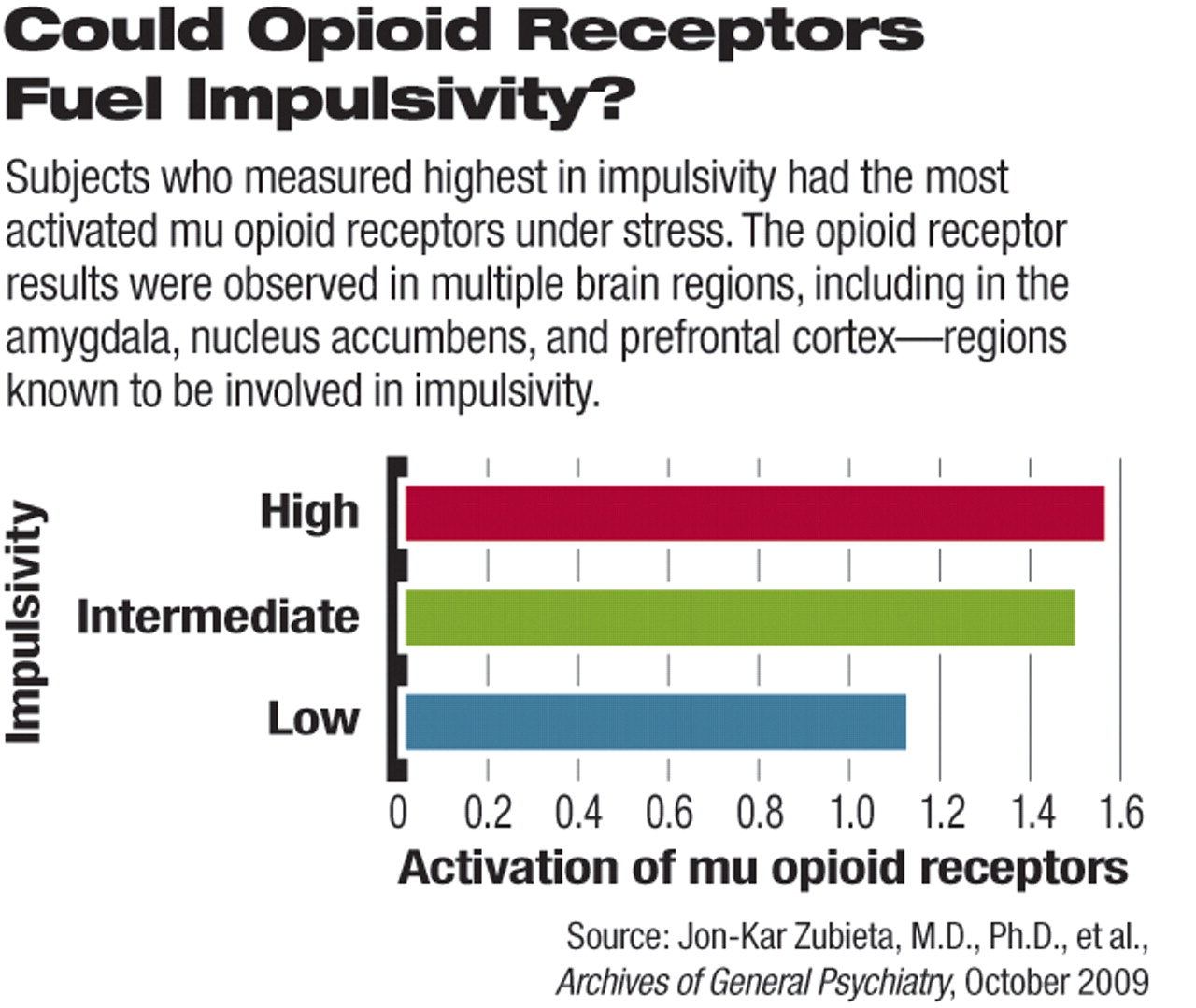The personality trait of impulsivity has been linked to such negative behaviors as binge eating, drug abuse, problem gambling, reckless driving, and suicide.
But what causes certain people to be impulsive? Probably genes, experts say. And very likely brain biology. Indeed, the serotonin neurotransmitter system and the dopamine neurotransmitter system have already been linked with impulsivity. And now the opioid neurotransmitter system has as well.
The research demonstrating this finding was headed by Jon-Kar Zubieta, M.D., Ph.D., a professor of psychiatry and radiology at the University of Michigan. Results were published in the October Archives of General Psychiatry.
Zubieta and his coworkers had 19 young, healthy male volunteers complete a personality questionnaire—the NEO Personality Inventory, Revised. The researchers wanted to learn how the subjects scored on scales in the questionnaire that measure impulsivity. Nine of the subjects, it turned out, scored above the population average on impulsivity; the remaining 10 scored below it.
The researchers then gave the subjects a radioactive material that makes mu opioid receptors visible on PET scans. After that, they examined the subjects' brains with PET scans. Finally, they looked to see whether mu opioid receptors in the brains of the impulsive subjects differed from those in the brains of nonimpulsive subjects.
The answer was yes, as the researchers obtained two notable findings. One was that impulsive subjects had significantly more opioid receptors than nonimpulsive subjects did and thus were more capable of releasing endogenous opioids than the latter. The other finding was that under the influence of stress, impulsive subjects showed a significantly greater activation of opioid receptors and thus released more endogenous opioids.
Moreover, the opioid receptor results obtained were observed in multiple brain regions, including in the amygdala, nucleus accumbens, and prefrontal cortex. These regions are known to be involved in impulsivity and have, in published research, been implicated in disorders associated with impulsive behaviors, such as pathological gambling and substance abuse.
But what are the larger implications of these results?
“People who are impulsive also have a greater opioid system function and particularly so during stress,” Zubieta told Psychiatric News. In other words, there is an association between impulsivity and the opioid system. Whether impulsivity impacts the opioid system, or whether the opioid system impacts impulsivity, or whether other factors unite the two remains to be discovered.
For example, said Zubieta, “It can simply mean that people who are impulsive are more able to tolerate stress, and, in fact, that stress may make them more impulsive—they may seek the thrill of novelty or be less likely to think through before acting.”
In any event, since impulsivity is associated with drug and sex experimentation, problem gambling, reckless driving, binge eating, and suicide, the results have clinical implications, Zubieta believes. “It means that the opioid system may be involved in those behaviors. In fact, we know it is, either directly or indirectly. This discovery may suggest possible novel therapeutic targets [for such behaviors].”
The study was funded by the National Institute on Drug Abuse.

